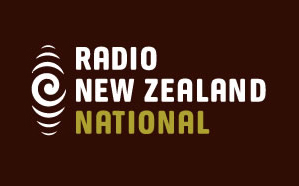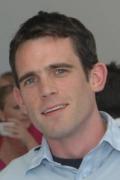
Veteran investigative journalist John Andrews has condemned the lack of resources put into investigations by New Zealand media and criticised a "chop and change" proposal to tackle the issue.
Speaking on Radio New Zealand’s Mediawatch programme on Sunday, he was interviewed at the Pacific Media Centre's Media, Investigative Journalism and Technology Conference.
Journalist Adelia Hallett was on hand at the conference and spoke to journalists about the future of investigative journalism in New Zealand.
Former chief reporter of New Zealand Herald John Andrews told Hallett: “I get the impression that there seems to be a lack of resources provided for investigative journalism and it seems to be a trend throughout the world.”
One of the ideas offered at the conference was that reporters spend their own time working on investigative pieces, to fit in with the demands of the newsroom and still carry out sound investigative reporting.
Andrews did not think the proposal was viable, saying it would be too hard to “chop and change” from ambulance-chasing to working on investigative pieces.
Hallett also spoke to Professor Wendy Bacon, from the University of Technology, Sydney, who is also the director of the Australian Centre for Investigative Journalism.
Positive outlook
Professor Bacon was surprised at the plight of journalism in New Zealand, as discussed at the conference, but offered a positive outlook.
“I do see hope,” she said.
“There is, I think, a big potential to produce some investigative journalism out of universities.
In New Zealand, three very good universities are teaching journalism.
“And between all those students and all those academics, who are after all journalists, we need to make a big contribution to the media.”
Professor Bacon spoke about her university-based report "Spinning the Media", which looked at the degree to which public relations material finds its way into the news. She also mentioned the investigations undertaken in the United States, thanks to funding from private institutions.
“It could be part of the answer. There is no reason why we can’t do that in New Zealand and Australia,” she said.
“We have to think creatively about it and detach, to some extent, the profession of journalism and investigative journalism from the needs of the news media.
“Not abandon the news media, but feed back into it.”
Keynote speaker
The idea was raised by New Zealand investigative journalist Nicky Hager, who along with Professor Bacon was a keynote speaker at the conference.
“The picture I was painting was of people who are involved and interested in investigative journalism having a wider conception of who could do it,” he said.
“Because at the moment there are people who are doing really fine investigative journalism but who are called authors or filmmakers. Often there are people working in groups like human rights organisations who are doing absolute outstanding research. But there’s this kind of media vanity almost saying they’re not proper journalists because they are working from a point of view.
“They are probably doing more independent or more rigorous work than people inside a busy newsroom.”
Hager called for a broader definition of the profession of journalism.
“We should be finding a definition which sets up standards of ethics and practices and shared purposes, which can bring in a wider group of people who are united not because they have done a journalism degree but because they are trying to do the kind of work that investigative journalism is,” he said.
“Half the stuff - more than half - which is investigative journalism in the media is fake investigative journalism.
“It’s just giving the appearance of offering something, whereas it’s probably an interview with the minister’s office or something.
“We are trying to define a profession here. It has to have its standards, its ethics, its mission. If people fit with those standards and mission, they don’t have to be sitting in a newsroom.”



